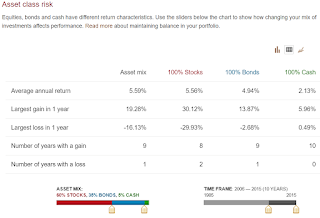From the fortunate position I currently find myself it’s unlikely I’ll ever need or want to take on any form of debt ever again. That said I’m also a plan for the worst just in case kind of guy. Incidentally, the end result of which is usually a nice upside surprise but you just never know.
So with this in mind I decided to finally, having never checked it previously, check in on my credit report and score. I used noddle.co.uk as its ‘free for life’ but there are a few of them out there including Experian and Equifax who offer free 30 day trials. Just don’t forget to unsubscribe with those or you could be paying up to £14.99 per month for every month you forget. Not an insignificant amount.
If I’m being honest I was expecting a nice credit worthiness upside and the actual result surprised me somewhat. So let’s look at what they have on me:
So with this in mind I decided to finally, having never checked it previously, check in on my credit report and score. I used noddle.co.uk as its ‘free for life’ but there are a few of them out there including Experian and Equifax who offer free 30 day trials. Just don’t forget to unsubscribe with those or you could be paying up to £14.99 per month for every month you forget. Not an insignificant amount.
If I’m being honest I was expecting a nice credit worthiness upside and the actual result surprised me somewhat. So let’s look at what they have on me:
- Personal Information. They have my date of birth and history of addresses.
- Financial Account Information. They have my American Express Platinum Cashback credit card which shows a long and perfect history of repayment as I direct debit full payment every month. They show my current account but have no record of my cash savings accounts. Unfortunately they also show a store card with a missed payment of £4 which is not even mine. I’ve disputed that which they say can take 28 days to resolve. So checking my credit report has already been of value.
- Short Term Loans. I positively get “YOU HAVE NO OPEN SHORT TERM LOAN ACCOUNTS ON YOUR REPORT.”
- Electoral Roll. I’m showed as being registered and the details are correct.
- Public Information. I positively get “YOU HAVE NO BANKRUPTCIES OR INSOLVENCIES RECORDED ON YOUR REPORT” and “YOU HAVE NO JUDGEMENTS RECORDED ON YOUR REPORT.”
- CIFAS (the UK’s Fraud Prevention Service). I positively get “THERE ARE NO CIFAS WARNINGS REGISTERED AT YOUR ADDRESS(ES).”



